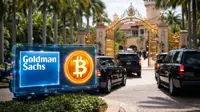US Congress passes bill to end debt crisis; shutdown ends
17 Oct 2013
The US Congress on Wednesday approved a deal to end the partial government shutdown and extend the debt limit, thereby averting a possible US default and the threat of a new global financial crisis.
 President Barack Obama signed the spending measure at the 11th hour after the Senate and House of Representatives passed the bipartisan deal that would provide funds to the government till 15 January and allow the Treasury to increase the government's borrowing authority till 7 February.
President Barack Obama signed the spending measure at the 11th hour after the Senate and House of Representatives passed the bipartisan deal that would provide funds to the government till 15 January and allow the Treasury to increase the government's borrowing authority till 7 February.
Sixteen days into the government shutdown, the Democrats-led Senate overwhelmingly passed the measure by an 81-18 vote, and the Republican-controlled House of Representatives approved it with a 285 to 144 vote.
President Obama signed the 35-page bill just after midnight, ahead of the 17 October deadline.
The compromise deal ends weeks of political brinkmanship that had unnerved global markets and pushed the world's biggest economy to the brink of a historic debt default and a financial calamity.
The deal brings hundreds of thousands of federal workers, the bulk of whom had been idling for the past 16 days, back to work.
The deal was arrived at after Republicans dropped efforts to use the legislation to force changes in President Obama's pet healthcare programme, dubbed Obamacare.
Republican leader McConnell said his party is backing away for the time being from efforts to dump Obama's `Affordable Care Act', but would not give up on erasing the plan from the legislative books.
Obama's health care overhaul was designed to provide tens of millions of uninsured Americans with coverage.
The partial shutdown of the government began on 1 October after the fight among Democrats and Republicans over Obama's signature health care changed the law leading to a partial government shutdown sidelining hundreds of thousands of federal workers (US government begins shutdown; 1 mn workers may lose pay).
The President, however, refused to budge, saying he wouldn't pay ''ransom'' in order to get the Congress pass a normally routine legislation.
Federal agencies were then directed to cut back services after lawmakers could not break the deadlock, House Republicans insist that the spending bill must include anti-Obamacare amendments, while Senate Democrats are just as insistent that it doesn't need amending.
The US has already reached its debt ceiling and has been using its cash reserves to pay bills. That money too is set to run out by tomorrow.
George Friedman, on 15 October, warned that the US government is paralysed, and there is a possibility that the United States will default on its debt (The US Debt crisis from the Founders' perspective).
The debt ceiling is a rule put in place by the Congress that limits on how much money the government can borrow; the current US debt ceiling stands at $16.7 trillion.
However, the deal provides only a momentary fix and does not resolve the fundamental issues of spending and deficits that divide Republicans and Democrats.
It sets a mid-December deadline for budget negotiators to reach a compromise on longer-term spending cuts. It would also require the Obama administration to verify the income of people who qualify for federal subsidies for medical insurance under the 2010 health care law.
It will fund the government till January 15, 2014; so Americans face the possibility of another government shutdown early next year.
To raise the government's borrowing power to last through 2014, the US Senate Democrats plan to introduce a bill this week. A fiscal default could have a disastrous economic impact on the nation.
President Barack Obama and The White House praised the Senate for the compromise, and he hopes to sign it into law.
On October 14, heads of some of the world's biggest banks warned of global financial catastrophe to avoid a possible government default on its huge debt (Top global bankers warn of financial catastrophe if US defaults).
US stocks surged on Wednesday, nearing an all-time high and share markets in Asia also cheered the deal to end the two-week long economic stalemate.
(Also see: House steno goes bonkers during US shutdown vote )


















